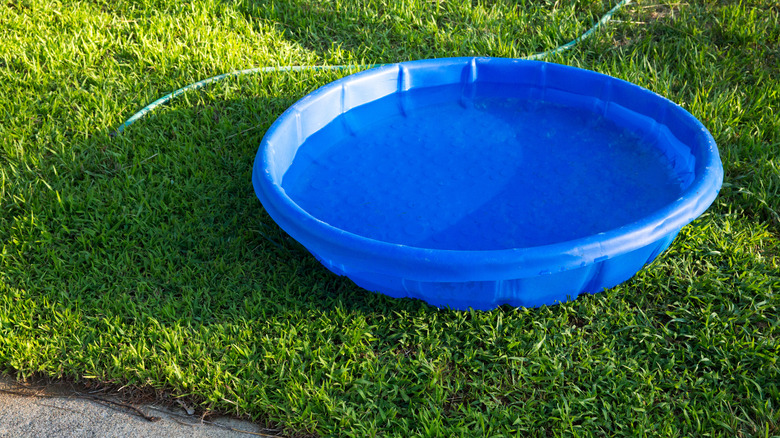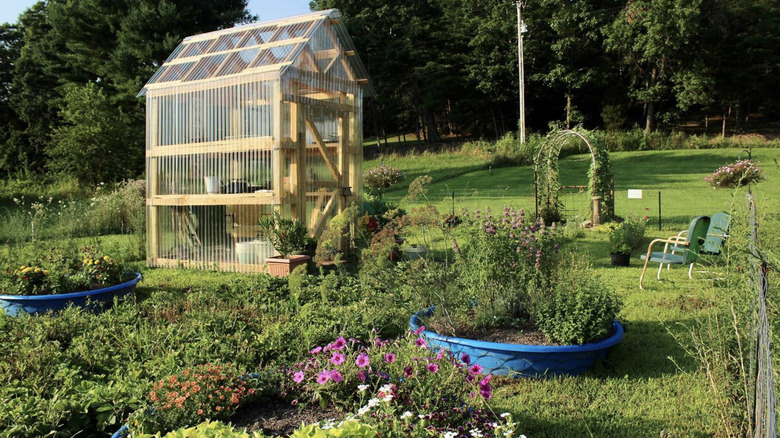How Safe Is It To DIY A Raised Vegetable Garden With Kiddie Pools?
People choose to start a raised bed garden for many reasons. First off, raised beds provide excellent soil drainage, and can help keep out veggie-munching pests like moles if you reinforce the garden beds properly. They can also make gardening less physically stressful by reducing the need to bend down, which is especially helpful for older adults and people with limited mobility. Because you can better control the soil quality in a raised bed, they're ideal for growing a wide variety of fruits, vegetables, and herbs.
One trend that's been gaining popularity is repurposing kiddie pools as raised garden beds. The idea behind this raised bed gardening alternative is that it's more affordable, and therefore accessible, for beginners and small-space growers. Because kiddie pools are made of plastic, though, it's worth wondering whether or not this is a safe gardening practice. The answer is that it depends on what type of plastic the pool is made of, since certain varieties used to make kiddie pools can leach chemicals into your garden's soil. There are plenty of kiddie pools that wouldn't be ideal to raise plants in, but some of them are perfectly safe for gardening. Knowing what to look for when choosing a kiddie pool for your raised bed will help keep your garden produce as healthy as possible.
Which kiddie pools are safe for raised bed gardening?
The most common type of plastic used to make kiddie pools is PVC (polyvinyl chloride), which can leach chemicals known as phthalates into the soil as the plastic degrades. It's no surprise that phthalates can have a negative effect on both edible plants and the humans who might eat them. Long-term exposure to phthalates can cause a range of health issues, including organ damage; because of this, it's not recommended to use kiddie pools made with PVC unless it's phthalate-free PVC. As far as healthier plastics go, HDPE (high-density polyethylene) and PP (polypropylene) are safe for gardening due to their resistance to heat and sun. These and other food-safe plastics are what you should stick to when DIYing a raised garden planter with a kiddie pool.
Fortunately, there are plenty of PVC-free kiddie pools available — many of the bright blue kiddie pools you find in big box stores during the summer are made from the safer plastic HDPE. You may find that many pools don't specify what type of plastic they're made out of, but a great way to weed out PVC-laden kiddie pools is by reading the labels closely. Inspect your pool for a small triangle-shaped recycling symbol with a number in the center. Each number corresponds to a different kind of plastic; HDPE will be labeled with a 2, and PP will be labeled with a 5. Unless you can verify that the product is phthalate-free, avoid growing plants in PVC plastic labeled with a 3.

